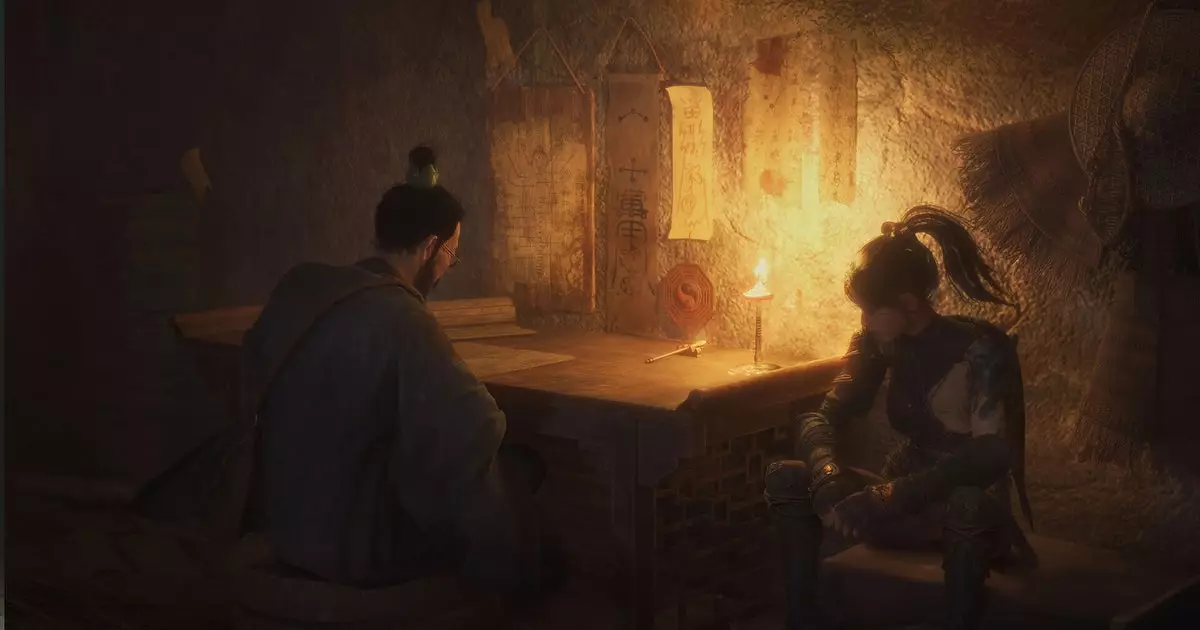In recent years, the gaming industry has seen a rising tension between developer intentions and player expectations. Wuchang: Fallen Feathers exemplifies this friction, especially with its latest patch, 1.5, which significantly alters the game’s challenge dynamics. Originally lauded for its gritty, soulslike combat and compelling storytelling, the game faced criticism when a developer-enforced update diminished its difficulty by making bosses temporarily unkillable. This move appeared to be a response to specific community pressures—likely from certain domestic audiences—highlighting how cultural influences and external feedback can influence core game mechanics. Such changes are often perceived as undermining the essence of challenging gameplay, which is a cornerstone of the soulslike genre. When developers prioritize appeasing certain factions over the integrity of game design, it risks alienating fans who cherish the original toughness and narrative immersion.
This scenario raises an important question: Should developers modify games post-launch to cater to a broader audience, or should they preserve the initial challenge as a tribute to dedicated players? Wuchang’s case demonstrates an unfortunate trend where major updates unintentionally dilute the game’s core experience, rather than enhancing it. Challenging boss encounters are not just mechanical hurdles—they serve as vital storytelling devices, symbolizing struggles and triumphs that resonate with players. When those moments are flattened into exhaustion states, the narrative depth and replayability naturally suffer, transforming what should be memorable victories into forgettable encounters. This demonstrates that, in modern game design, balancing community feedback with artistic vision is a complex but critical task; often, the latter gets lost amidst external pressures.
The Power of Player Agency through Modding
Despite these developments, the gaming community continually demonstrates resilience and ingenuity by empowering themselves through mods. In the case of Wuchang, players dissatisfied with the adjustments introduced in patch 1.5 have created a workaround—a dedicated mod that reverts the game to version 1.4. This “Rollback censorship patch” orchestrated by AVK95 exemplifies how dedicated fans refuse to accept a diminished experience. Instead, they actively fight back against decisions they believe compromise game integrity. Such efforts highlight an essential aspect of modern gaming: player agency. With the right tools, gamers can shape their experience, ensuring gameplay remains aligned with their expectations and preferences.
This community-driven approach to mitigating undesirable updates underscores both the strengths and weaknesses of contemporary game ecosystems. While official channels often lack straightforward mechanisms for rolling back updates—particularly on storefronts like Steam that lack integrated version management—mods fill this void. However, the process is often convoluted, involving manual file management and disabling auto-updates, which can be intimidating for less tech-savvy players. It reveals a significant gap in official platform features, as players’ desire to preserve their gaming experience clashes with business models focused on continuous updates and monetization. Nonetheless, for those willing to tinker, mods like AVK95’s offer a lifeline to maintain the challenge and narrative immersion intended by the original game design.
Broader Implications for the Future of Game Development
The ongoing story of Wuchang’s patch and the subsequent modding community exemplifies larger questions regarding how games evolve post-launch. While updates are often justified as improvements—fixing bugs, balancing gameplay, or adjusting difficulty—they sometimes come at the cost of user experience. When these changes undermine core design principles, the community’s response often manifests as unofficial patches, demonstrating that the relationship between developers and players is a delicate dance.
Looking ahead, this scenario hints at a possible paradigm shift. Will developers recognize the importance of offering more robust tools for players to control their game experience? The rise of modding communities shows a clear demand for autonomy, and perhaps future titles could include official support for version rollbacks or configurable difficulty modes. Meanwhile, players will likely continue to seek out creative solutions when official channels fall short. Ultimately, challenges like these underscore a vital truth: in the realm of gaming, player voice and agency are more vital than ever, and communities have shown they won’t hesitate to push back when core experiences are compromised.
This chapter in Wuchang’s history is a testament to the ongoing tug-of-war between game makers and players—a dance that will undoubtedly shape the future landscape of game development, where challenge, narrative, and community agencies are deeply intertwined.

